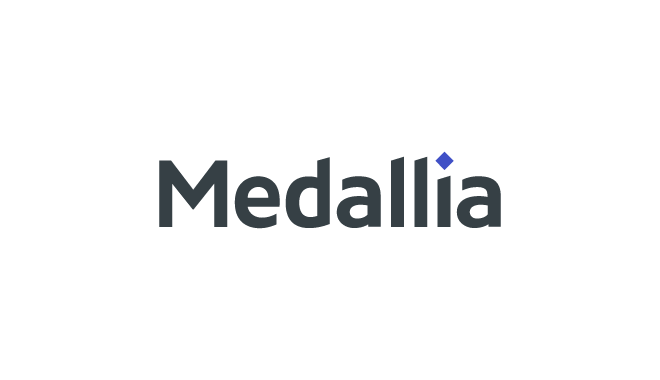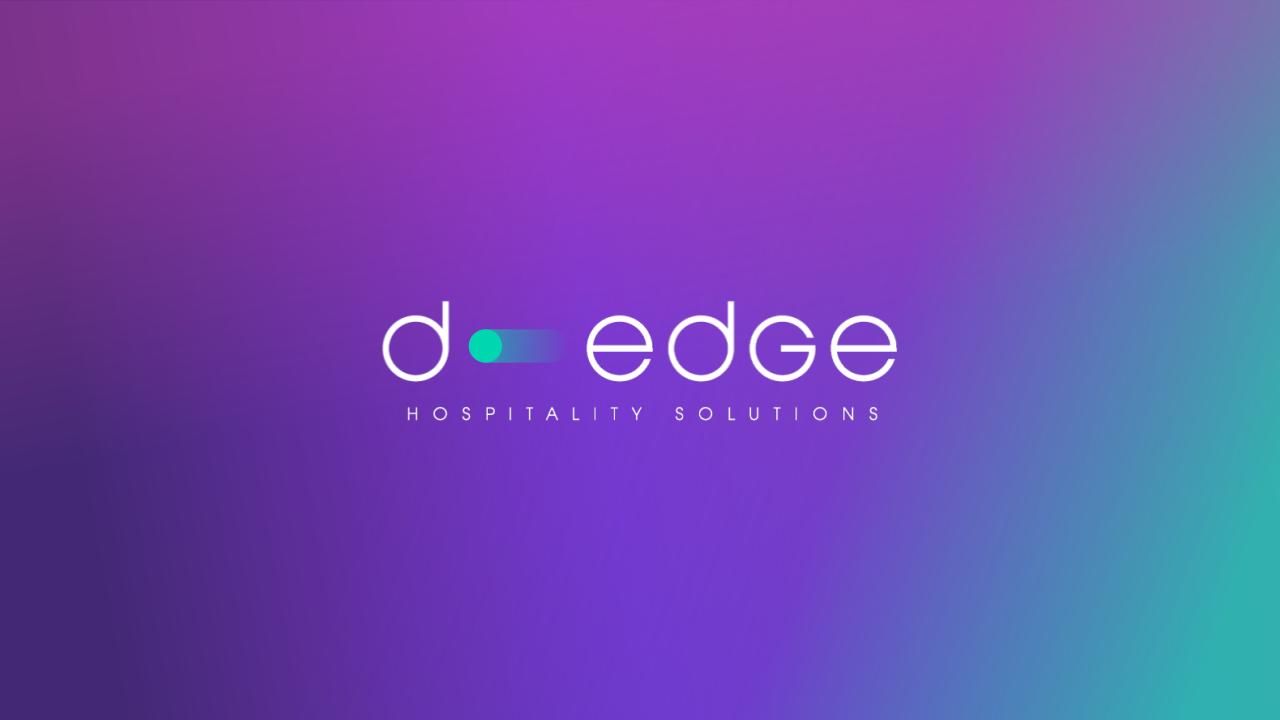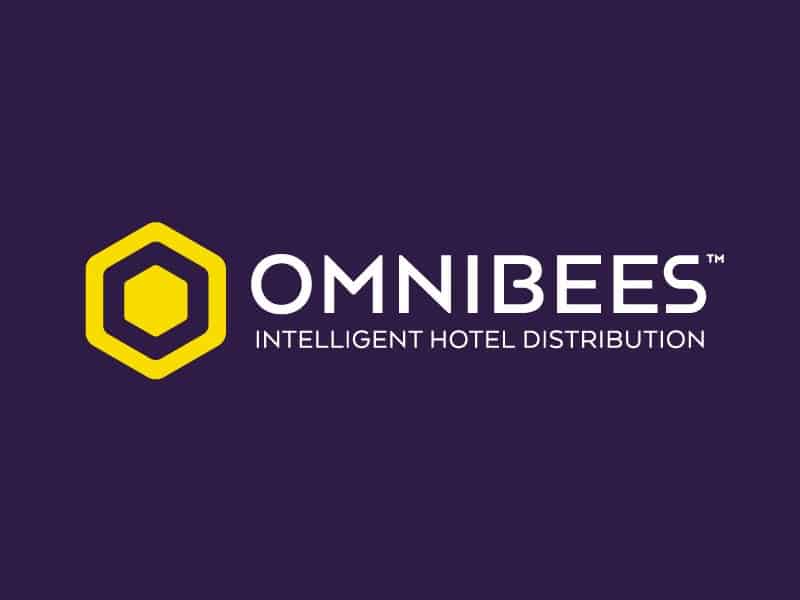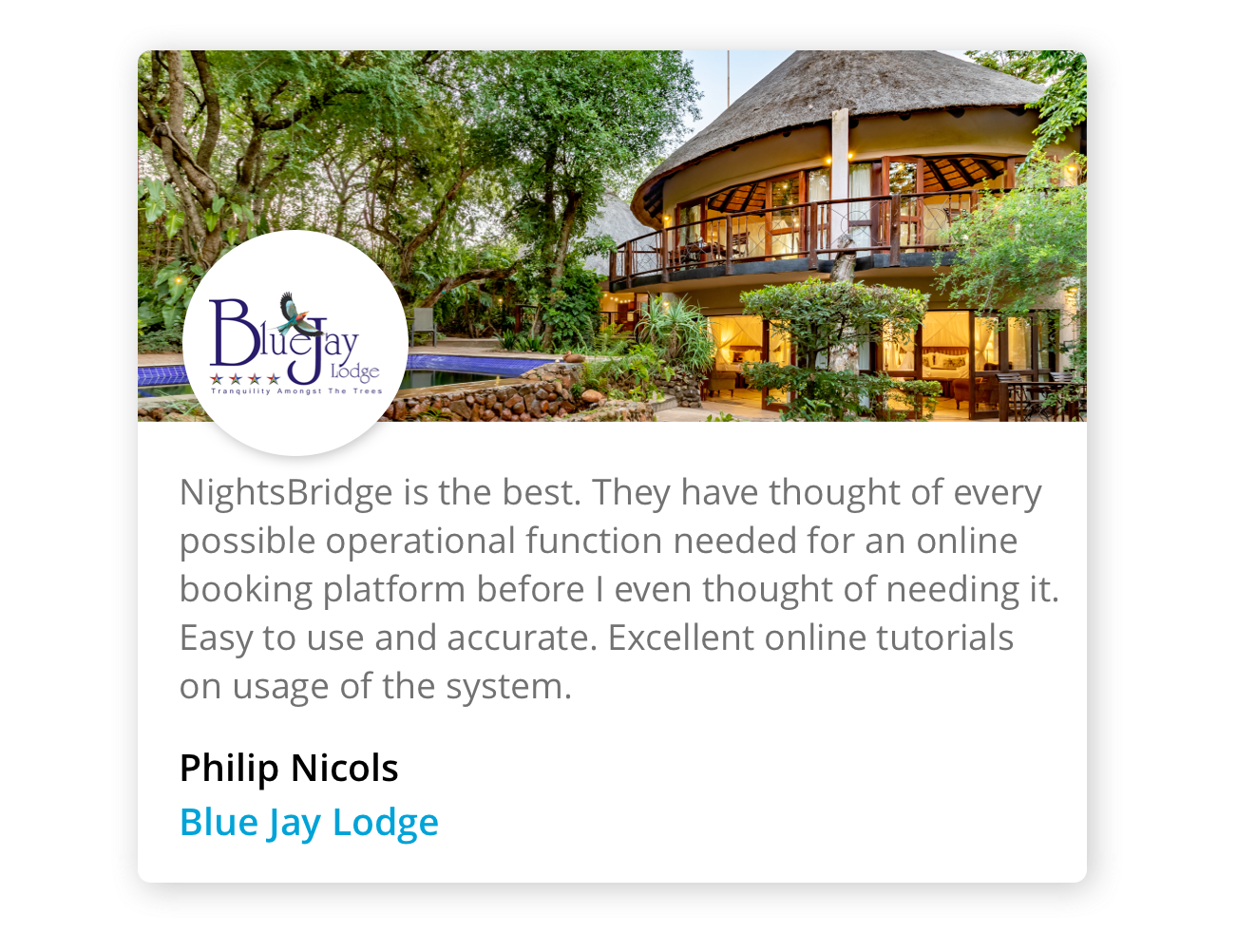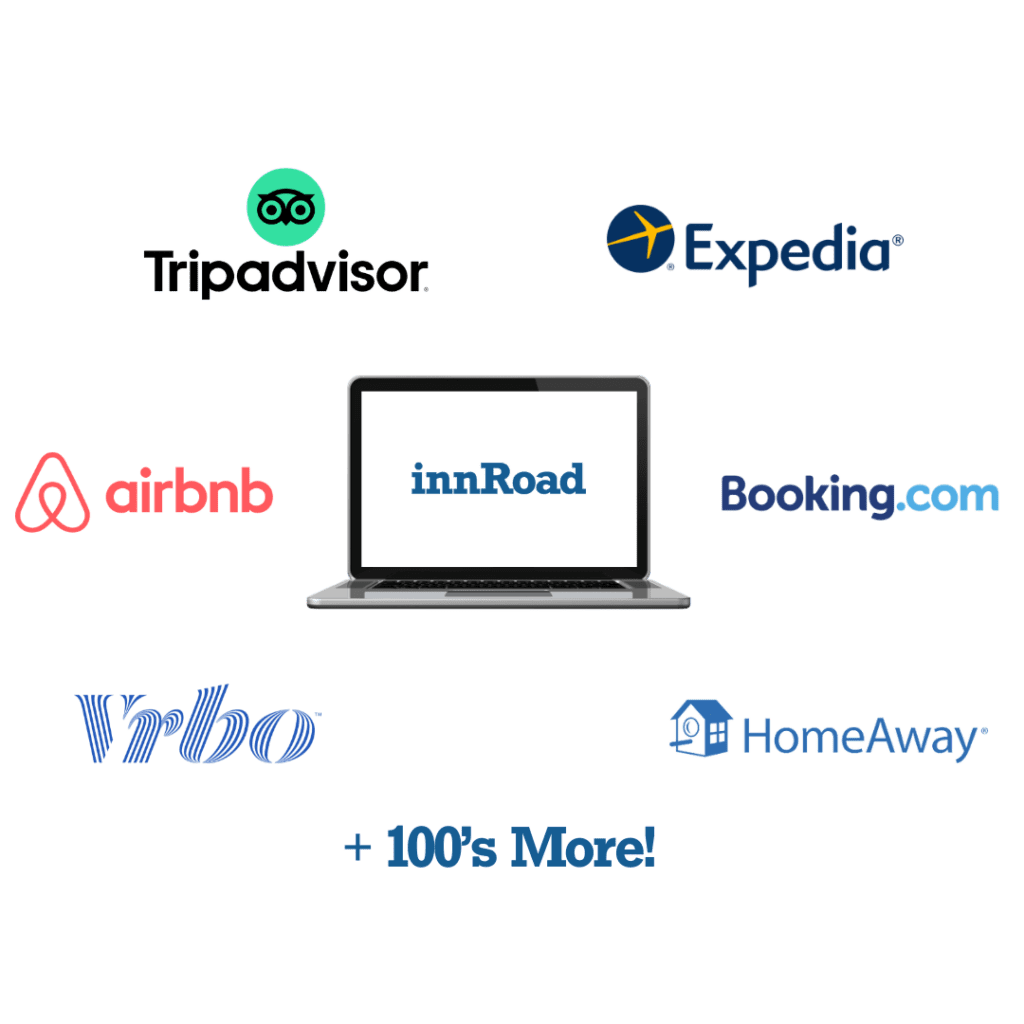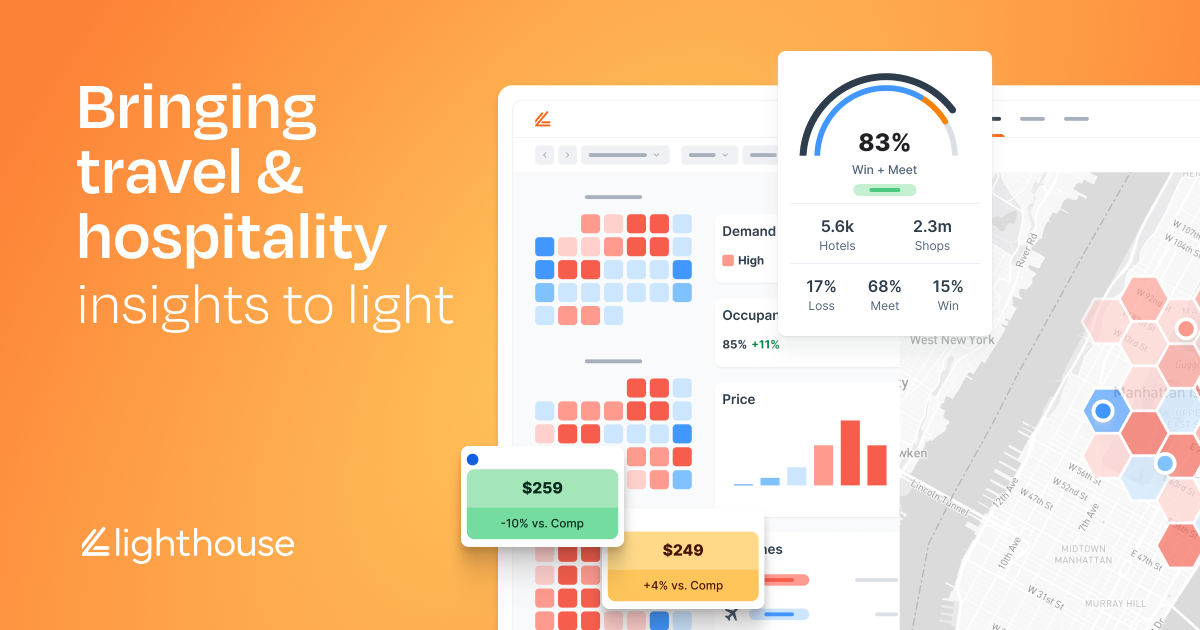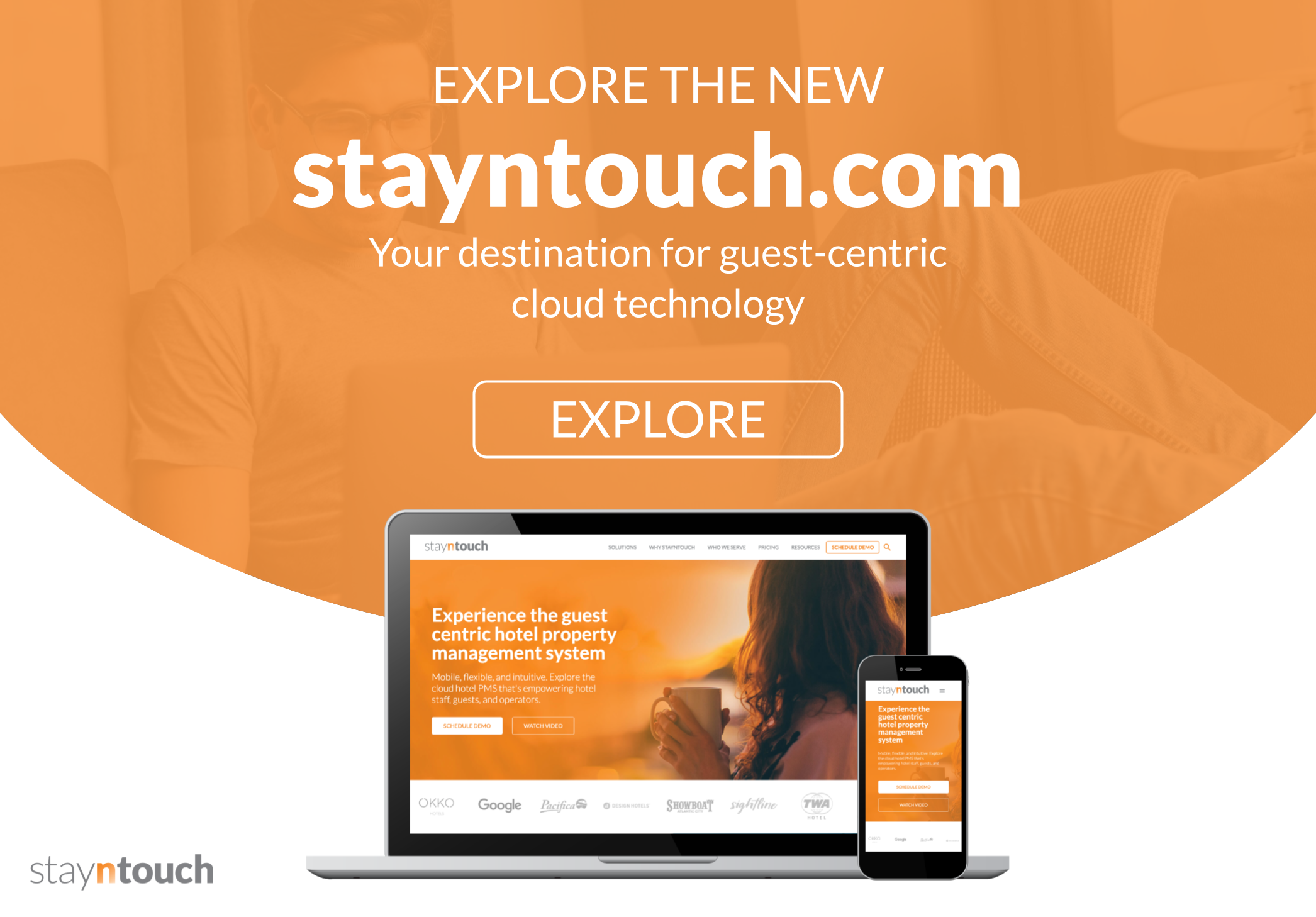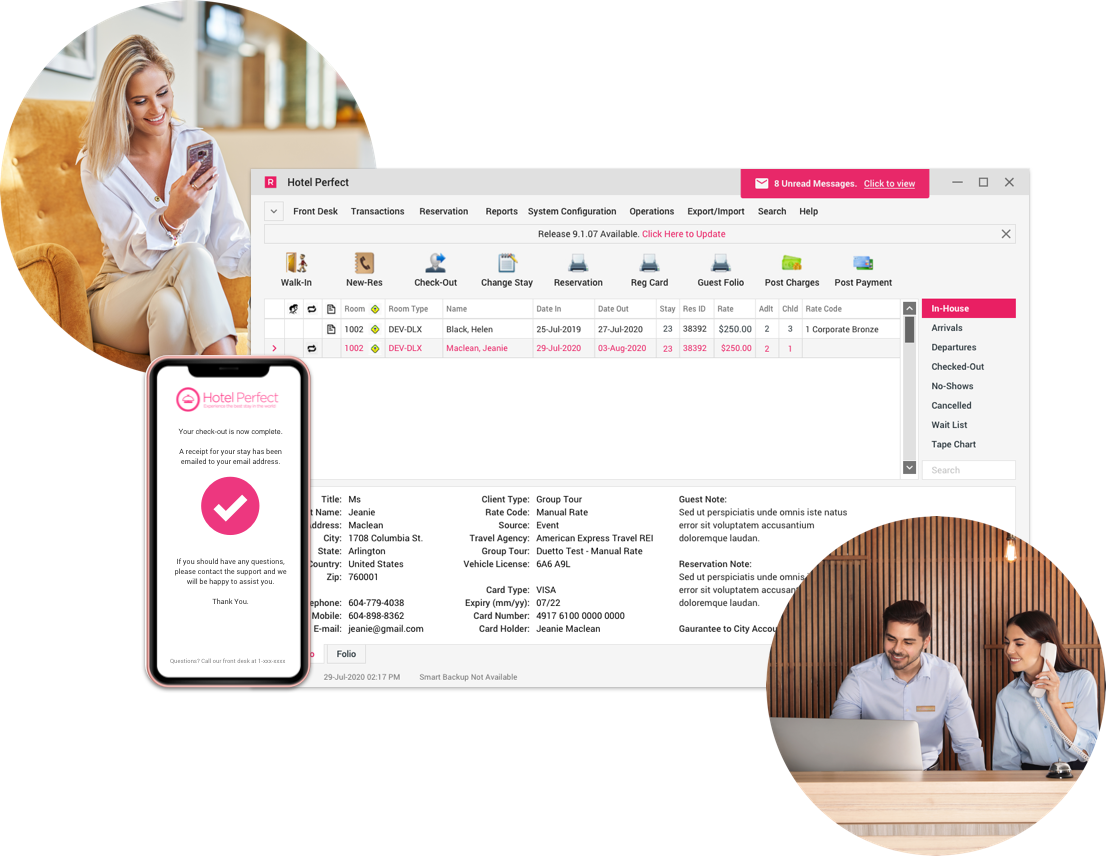Introduction
Selecting the right hotel reservation system is crucial for optimizing bookings, managing operations and driving revenue. However, with dozens of providers competing for attention, it can be difficult for hoteliers to determine which platform is the best fit. This guide evaluates and compares 15 of the leading hotel reservation software providers based on core functionality, integrations, pricing and other important considerations.
Methods of Evaluation
The hotel reservation systems are evaluated based on the following factors: core property management functionality, booking engine and channel connectivity, reporting and analytics tools, customer reviews and ratings, pricing and packaging options. An additional factor considered is metrics like number of backlinks, organic traffic and keyword search trends which can indicate a company’s authority and popularity in the hotel tech space.
1. Cloudbeds
Cloudbeds is an all-in-one hotel property management system (PMS), booking engine, and channel manager designed to help hotels and vacation rentals streamline operations. Founded in 2012 and based in San Francisco, Cloudbeds offers a complete hospitality management solution for properties of all types and sizes.
Pros: Some key advantages of Cloudbeds include:
– All-in-one PMS, booking engine and channel manager
– Intuitive analytics and performance tracking
– Excellent multi-property and group booking support
– Integrations with over 350+ third-party suppliers
Cons: One potential disadvantage is that the complete Cloudbeds management solution requires an ongoing subscription, whereas some competitors offer a one-time purchase option for basic PMS functionality.
Pricing: Cloudbeds pricing starts at $99/month for the base package and scales upwards depending on property size, features needed and support required. They also offer customized enterprise plans for large hotel groups.
Some key stats about Cloudbeds include:
– Used by over 30,000 properties worldwide
– Supports over 1,000 channels for distribution and bookings
– Handles over $5 billion in annual room revenue
– Has processed over 150 million bookings to date
CloudbedsCloudbeds hospitality management solution for all property types. 2023 Best PMS, Best Hotel Software, Top 10 Hotelier’s Choice, and more.cloudbeds.com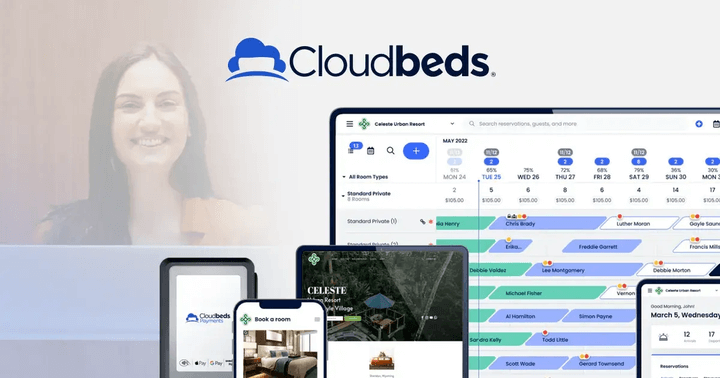
2. Medallia PMS
Medallia PMS is a cloud-based property management system developed by Medallia to help hotels and resorts maximize revenue, streamline operations, and enhance the guest experience. As one of the top hospitality software providers, Medallia PMS provides a comprehensive solution to manage reservations, bookings, rates, and inventory for hotels of all types and sizes.
Pros: Some key advantages of Medallia PMS include: – Comprehensive hospitality platform with features for front desk, housekeeping, F&B and more – Robust reporting and guest experience tools to analyze feedback – Large global client portfolio and proven track record supporting hotels worldwide
Cons: One potential disadvantage is that as an established player, Medallia PMS may come with a higher upfront and ongoing cost compared to some smaller providers.
Pricing: Medallia PMS pricing is customized based on hotel size, features, and support needs. Generally, hotels can expect an implementation fee plus a monthly subscription based on number of rooms, users, and supported property locations.
Some key stats about Medallia PMS include: – Serves over 5,000 hotels globally – Handles over 10 million reservations per year – Integrates with over 150 other systems including channel managers and booking engines – Deployed at large hotel brands including Hilton, IHG, and Hyatt
3. Lodgify
Lodgify is an all-in-one vacation rental platform that allows property managers and hosts to create a professional website, manage bookings, and run their entire business from one place. Founded in 2010, Lodgify aims to make managing vacation rentals effortless with its comprehensive software solution.
Pros: Some key advantages of Lodgify include:
– Modern and intuitive booking engine that allows guests to easily browse and book properties
– Comprehensive business management tools for calendars, pricing, payments, CRM, etc.
– Advanced reporting and analytics to track bookings, revenue, occupancy and more
– Multilingual support to reach a global audience
Cons: A potential disadvantage is that the software may have a learning curve for some users who are not tech-savvy. The interface is intuitive but there are many tools and features to learn.
Pricing: Lodgify offers several pricing tiers for its vacation rental software. The basic plan starts at $49/month and offers the core booking functionality. More advanced plans with additional features such as channel management, property profiles and business tools range from $99-149/month.
Some key stats about Lodgify include:
– Over 10,000 properties uses its software worldwide
– Supports over 150 different channels for distribution including Airbnb, Booking.com, VRBO, etc.
– Processes over $1 billion in annual bookings
– Supports 45+ languages
4. SiteMinder
SiteMinder is a leading hospitality technology platform for hotels around the world. Founded in 2000 and headquartered in Sydney, Australia, SiteMinder works with over 43,000 properties in 155 countries. As the world’s largest open hotel commerce platform, SiteMinder provides revenue management solutions to help hotels optimize bookings across online travel agencies and other booking channels.
Pros: Some key advantages of using SiteMinder include:
– Leading hospitality tech platform for global brands
– Extensive OTA and channel connectivity options with integrations to over 300 partners
– Comprehensive data and business insights through analytics and reporting
Cons: A potential disadvantage is that the platform is more suited for larger hotel groups and chains rather than single independent properties given its emphasis on global distribution.
Pricing: SiteMinder offers various pricing plans depending on property size and needs. Basic plans start at $99/month for independent properties while enterprise-level pricing is customized for large hotel groups with global operations.
Some key stats about SiteMinder include:
– Works with over 43,000 hotel properties globally
– Reaches customers in 155 countries
– Processes over $30 billion in hotel bookings annually
– Integrates with over 300 channel managers, property management systems (PMS), and online travel agencies (OTAs)
5. Revinate
Revinate is a leading hotel Guest Data Platform and direct booking solutions provider. Founded in 2007, Revinate empowers hoteliers to connect with guests using data-driven strategies and maximize direct bookings through their online platform.
Pros: Some key advantages of Revinate include:
– Comprehensive channel management through a single platform
– Data-driven insights and ability to create personalized marketing campaigns to drive direct bookings
– Robust reporting and analytics to measure campaign performance
Cons: A potential disadvantage is the pricing, as the platform may not be affordable for smaller independent hotels or budget hotels.
Pricing: Revinate offers flexible pricing plans starting from $99/month for a basic plan up to an ‘Enterprise’ package customized for large hotel groups with 5000+ rooms. Discounts are available for annual/multi-year commitments.
Some key stats about Revinate include:
– Manage over 30,000 properties globally
– 15+ years in business
– Serve over 150 hotel brands
6. Fastbooking
Fastbooking is a hotel reservation software that helps hotels manage bookings and maximize revenue. In business since 2005, Fastbooking connects to hundreds of booking sites including Expedia, Booking.com, and Hotels.com directly to sync availability and rates.
Pros: Some key advantages of Fastbooking include:
– Comprehensive property management system (PMS) focused on seamless booking integrations
– Connects to hundreds of booking sites and channels directly to sync rates and availability
– Advanced distribution tools and packages to help hotels maximize exposure and bookings
Cons: A potential disadvantage is that the software may have a slightly steeper learning curve for hoteliers compared to some other systems.
Pricing: Fastbooking pricing starts at $99/month for the basic package. Premium packages with additional features are priced at $199-299/month. Custom quotes are available for franchise and chain hotels.
Some key stats about Fastbooking:
– Over 17,000 hotels use Fastbooking worldwide
– Connects to over 300 booking channels and sites
– Processes over $10 billion in hotel reservations annually
7. Omnibees
Omnibees is a hotel reservations software developed by Omnibees to help hoteliers manage reservations, rates and inventory across multiple booking channels. Founded in 2011 and headquartered in Portugal, Omnibees is one of the top hotel channel managers and property management systems in Europe. The platform aims to simplify hotel operations through an all-in-one solution.
Pros: Some key advantages of Omnibees include:
– End-to-end PMS and channels management from a single platform
– Real-time rate and availability integration across all booking channels
– User-friendly dashboard and reports to gain insights into bookings and revenue
Cons: A potential disadvantage is that the platform may have a slightly steeper learning curve for hoteliers used to standalone PMS or channel manager solutions.
Pricing: Omnibees offers flexible pricing plans starting from €39/month for independent hotels based on number of rooms and features. It also offers an free 14-day trial to test out the platform.
Some key stats about Omnibees include:
– Manages over 4,000 hotels globally
– Integrated with over 300 OTAs including Booking.com, Expedia and Hotels.com
– Supports 27 languages
– Handles over 10 million reservations annually
8. NightsBridge
NightsBridge is a hotel reservations software that caters specifically to the needs of accommodation providers throughout Africa. Founded in 2012 and headquartered in Cape Town, South Africa, NightsBridge works with thousands of hotels, resorts, guest houses and other types of properties.
Pros: Some key advantages of using NightsBridge include:
– Robust channel and reservation integrations that simplify the booking process
– Powerful booking engine capabilities that allow customization and easy management of rooms, rates and inventory
– Detailed analytics and reporting tools to help optimize performance and identify trends
Cons: As an African focused solution, one potential disadvantage is the lack of support for markets outside of Africa. However, NightsBridge is continually improving and expanding its reach to better serve the needs of global travelers.
Pricing: NightsBridge offers flexible pricing plans tailored to properties of different sizes. Basic plans start from $59/month for smaller B&Bs and guest houses. Larger resorts and hotel chains generally pay between $100-500/month depending on the number of room.
Some key stats about NightsBridge include:
– Works with over 5,000 accommodation providers across Africa
– Supports reservations on over 200 global sites including Booking.com, Expedia and HRS
– Average customer sees a 20% increase in direct bookings within the first year of using NightsBridge
– Integrations with over 30 channel managers and property management systems
9. HotelEngine
HotelEngine is a cloud-based hotel reservation software that provides solutions for managing reservations across various online booking channels. Founded in 2012 and headquartered in San Francisco, HotelEngine aims to simplify the process of booking corporate travel and accommodations. With direct connections to over 200,000 properties globally, HotelEngine allows hotels of all sizes to gain access to corporate rates and contracts without any long term commitments or additional fees.
Pros: Some key advantages of HotelEngine include:
– Modern cloud-based solution that is easy to use on any device
– Streamlined booking process across all major OTAs and channels under one platform
– Flexible tools and pricing models suitable for independent hotels of all sizes
– Intuitive dashboard provides real-time visibility into reservations, rates and availability
Cons: A potential disadvantage is that the basic pricing plan lacks certain features available in premium tiers like customized rates and contracts that larger hotel groups may require.
Pricing: HotelEngine offers transparent monthly subscription pricing starting from $99 per month for independent hotels. Additional premium plans with more features are available for $199 and $399 per month. There are no long term contracts or implementation fees. Customized rates are available with premium pricing plans.
Some key stats about HotelEngine include:
– Manage reservations from 200,000+ properties globally
– Connect to clients through 41 online travel agencies including Booking.com and Expedia
– Offered as a monthly subscription starting from $99/month for independent hotels
– Manages over $5 billion in annual room nights
10. InnRoad
innRoad is a leading hotel property management system and channel manager developed by InnRoad. As a cloud-based solution, innRoad integrates reservation channels, operations and business intelligence tools to help hotels increase direct bookings and profits. Some key features include robust channel management, centralized rate and inventory control, powerful business reports and upselling capabilities to boost guest spending.
Pros: Some key advantages of using innRoad include:
– Unique upselling and guest recovery tools to boost ancillary revenue
– Powerful rate and inventory optimization to maximize profits
– Robust reporting and business intelligence for analyzing KPIs and trends
Cons: As a relatively new player in the PMS market, innRoad may not have as many features or integrations as some more established competitors. The interface also takes some time to learn for properties switching from another system.
Pricing: innRoad offers a few different pricing plans depending on property type and size. Basic plans start from $99/month for small independents up to more customized enterprise plans for large hotel groups. All plans include 24/7 priority support and upgrades to new features.
Some key stats about innRoad include:
– Used by over 5,000 properties worldwide
– Integrates with over 300+ OTAs including Booking.com, Expedia and Hotels.com
– Average 11% increase in direct bookings for customers
– Savings of $1,200 per property on OTA commissions
11. RateGain
RateGain is a leading SaaS company providing hotel reservation and revenue management software. Founded in 2004, they have offices worldwide and work with over 1200 hotel brands. Their software helps hotels optimize revenue, availability and pricing across all channels.
Pros: Key advantages of RateGain hotel software include:
– Revenue management expertise to maximize profitability
– Robust data analytics and insights to inform pricing strategies
– Seamless connectivity to major OTA and channel partners for distribution
Cons: A potential disadvantage is the upfront and ongoing subscription costs which may not suit all budgets.
Pricing: RateGain offers flexible pricing plans starting from $199/month for their basic plan up to an customized enterprise plan depending on hotel size, features needed and support levels.
Some key stats about RateGain include:
– Manage over 1.5 million hotel rates daily
– Connect to over 500+ channels including Booking.com, Expedia, etc.
– Tracks and analyzes over 10 billion data points monthly
12. OTA Insight
OTA Insight is a hotel revenue optimization solution that helps hoteliers optimize bookings from online travel agencies (OTAs) like Expedia, Booking.com, and TripAdvisor. The platform provides advanced analytics and insights into a property’s OTA bookings, rates, and performance.
Pros: Some key advantages of OTA Insight include:
– Comprehensive OTA performance tracking platform that monitors all bookings from major OTAs
– Valuable insights into which OTAs are driving the most bookings and revenue which can be used to optimize partner relationships
– Powerful reporting and analytics tools that provide easy to understand visualizations on KPIs like bookings, rates, cancellations and more
Cons: The main potential disadvantage is that it requires integrated property management systems (PMS) and central reservation systems (CRS) to access booking data. So hotels that do not yet use modern PMS or CRS solutions may find it difficult to leverage all of OTA Insight’s features.
Pricing: OTA Insight offers flexible pricing based on the size and needs of each property. Typical pricing includes a monthly subscription fee plus implementation costs. Pricing starts from around $500/month for a single small property and scales up based on additional properties, rooms, supported markets and custom features.
Some key stats about OTA Insight include:
– Over 10,000 hotel properties currently use the platform worldwide
– Provides performance tracking for over 300 OTAs globally
– Increased occupancy rates by up to 10% for hotel clients
– Average customer ROI of 3x the initial investment within the first year
13. Stayntouch
Stayntouch is a leading hotel property management system designed for hotels of all sizes. Their mobile and cloud-based platform allows hotels to run their entire operation from anywhere, on any device. Stayntouch provides a fully integrated platform including reservations, channel management, guest management, night audit, accounting and more.
Pros: Some key advantages of Stayntouch include:
– Mobile and cloud-based platform allows access from anywhere
– Built-in guest engagement capabilities like mobile check-in/out and messaging
– Flexible API integrations allow hotels to customize the system as needed
– Intuitive dashboards and reports provide real-time data insights
Cons: Currently there is no major disadvantage. However, as with any cloud-based system, users require a consistent internet connection for full functionality on mobile devices.
Pricing: Stayntouch offers customizable pricing plans for hotels of all sizes. Basic plans start at $99/month for independents up to $349/month for large chains. Additional per-room or per-user fees may apply depending on property size and needs.
Some key stats about Stayntouch include:
– Used by over 7,500 hotel properties worldwide
– Integrates with over 300+ third party systems via API
– Real-time data sync and access from any device
– Robust guest engagement tools including mobile check-in/out, keyless entry, and messaging
14. Opera PMS
Opera PMS is a comprehensive property management system developed by Oracle MICROS. Originally released in 1993, it is one of the most widely used PMS platforms in the hotel industry, trusted by global hospitality brands to power their operations.
Pros: Some key advantages of Opera PMS include:
– Feature-rich and highly customizable to support specific business needs of hotels.
– Specialized functionality tailored for large luxury and resort properties.
– Open architecture allows for integration with various third-party systems.
– Reliable and proven platform trusted by industry leaders over the past 3 decades.
Cons: A potential disadvantage is that as a traditional on-premise system, Opera PMS requires an upfront investment in both the software licenses and on-site IT infrastructure for maintenance and support.
Pricing: Pricing for Opera PMS is not publicly disclosed and varies based on property size, features, and level of customization required. However, it typically requires a sizeable upfront license fee along with annual maintenance contracts.
Some key stats about Opera PMS include:
– It is used by over 60,000 properties worldwide spanning more than 100 countries.
– Supports operations for major luxury and resort brands like Marriott, Hyatt, IHG, etc.
– Handles over 500 million hotel room nights booked annually.
– Available in over 25 languages.
15. RoomKeyPMS
RoomKeyPMS is a leading hotel property management system (PMS) built for the modern hotelier. As a cloud-based solution, RoomKeyPMS allows hotels to manage reservations, rate distribution, inventory, and reporting from any web browser without expensive on-premise servers or software.
Pros: Some key advantages of RoomKeyPMS include:
– Modern cloud-based platform allows easy remote access from any device
– Robust channel management features streamline rate distribution and inventory updates
– Affordable pricing starting at $49/month makes it a cost-effective option for independent hotels
Cons: As an all-cloud solution, being dependent on a stable internet connection could be seen as a potential disadvantage by some hotels.
Pricing: RoomKeyPMS offers flexible monthly pricing plans starting at $49 per month for up to 10 rooms. Additional per-room pricing is available for hotels with more than 10 rooms.
Some key stats about RoomKeyPMS include:
– Used by over 5,000 hotels worldwide managing hundreds of thousands of rooms
– Integrations with over 300 channel managers and operators including Booking.com, Expedia, and Hotelbeds
– 24/7 live chat and phone support included with all plans
Conclusion
While every hotel has unique needs and priorities, this guide aims to compare the top hotel reservation systems side by side to help properties of all types and sizes determine the best solution. Core factors like robust PMS functionality, extensive channel integrations, data-driven insights and competitive pricing were important considerations. The right combination of features at an affordable cost can help hoteliers maximize bookings, streamline operations and enhance the guest experience.




